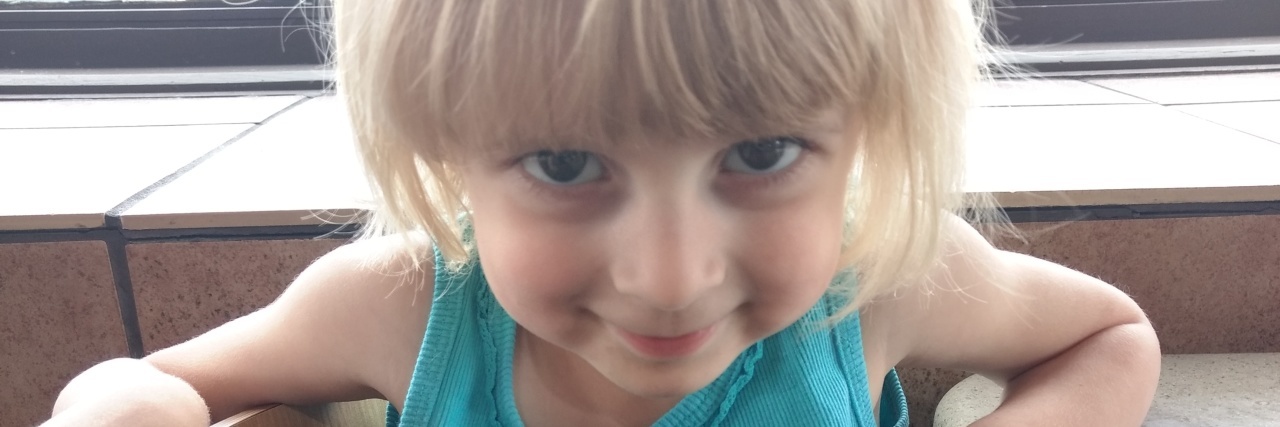How My Daughter's Diagnosis of Cerebral Palsy Became Our Roadmap
“But gosh, it does sound a tiny bit like extremely mild spastic CP.”
I’d been silently, passively researching and questioning the possibility of my youngest daughter having cerebral palsy (CP) for several months. I kept brushing it under the rug, making excuses for the observations I was notating, mostly chalking it up to her being “the baby” and spending more time in my arms than her older sister. Without even knowing my concerns or wonderings, one of my best friends (who has CP), placed that statement out there almost as if she peered into my soul and knew it was on my mind.
The nearly two-hour conversation that followed left a knot in my stomach and thoughts zooming through my mind. It wasn’t that I was worried about this very probable reality for my child, but more that I felt responsible in some way for my child having a neurological disorder and I worried I would not have the adequate skills and abilities to help her be as successful as possible in her newly discovered life. I felt that this was just another shortcoming to add to my collection, another line item on “ways I’m a failure.”
I brushed these personal thoughts to the side (mostly) and dove into being a researcher and data-collector. I spent 10 days straight constantly observing my daughter, notating everything via typed documentation as well as pictures and video. I knew that, at worst, her symptoms were fairly mild, so evidence would be important to allow her pediatrician to piece everything together. Cerebral palsy or not, I wanted answers.
“We will schedule an MRI to confirm and identify specifically what areas of her brain that are impacted, but I am confident that your daughter has mild CP.”
It required two months of anxious anticipation and patience to get to the initial appointment with a pediatric neurologist. The moment she looked at me and my ears heard those words, an instant sense of relief consumed my body. The comfort of having an answer, the satisfaction of a motherly intuition being correct: just like the feeling when you place the last piece in a puzzle. My daughter has cerebral palsy.
Receiving a diagnosis is never necessarily easy, especially when it involves your child. Navigating the complicated endeavor of treating a condition that requires specialists, physical and occupational therapy, and potentially mobility devices is nothing short of overwhelming at first. Accepting that life is going to look very different, having the uncertainty of what unique challenges your child will face as opposed to her able-bodied peers, wrapping your brain around how to communicate with family and friends: every step is learning, a new experience.
The most important aspect is simple, though: my child. I will do the research, put in the time on the phone or completing documents, go the extra mile all for her. And, at the end of the day, she’s still the same beautiful, intelligent, fun-loving child she’s been since the day she was born. A diagnosis is one thing: a roadmap. It isn’t a definition, it isn’t a title, it is simply a way to identify where we need to go, how to navigate to the same final destination for a child.
Our travels are only beginning, but now we have the map we need to plan our route. We’re no longer traveling without direction. My daughter has cerebral palsy.

